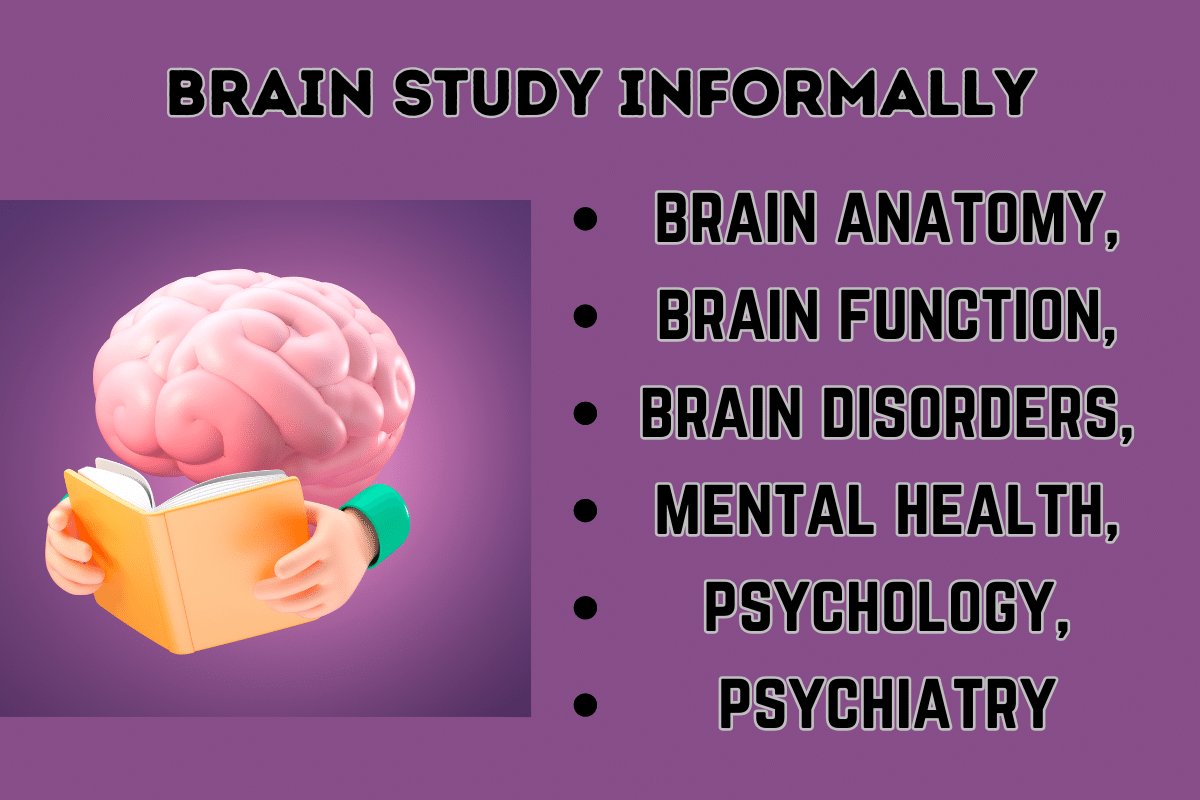Brain Study Informally
The brain is the most complex organ in the human body, and scientists still learn new things about it daily. Traditional methods of studying the brain, such as brain scans and autopsies, can be expensive and invasive. However, there are several ways to study the brain informally that are both affordable and accessible.
Read More Articles : Educational Thought Leaders , 5g applications in education,
Neuroscience
Neuroscience is the scientific study of the nervous system. Neuroscientists use various brain study methods, including brain scans, electroencephalography (EEG), and magnetic resonance imaging (MRI). These methods allow neuroscientists to visualize the brain and study its structure and function.
Cognitive Psychology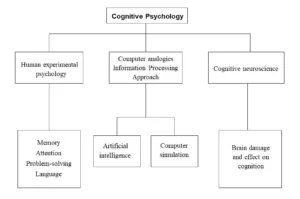
Cognitive psychology is the study of the mind and how it works. Cognitive psychologists use various brain study methods, including behavioral experiments, computer simulations, and brain scans. These methods allow cognitive psychologists to understand how the brain processes information, makes decisions, and learns.
Neuroimaging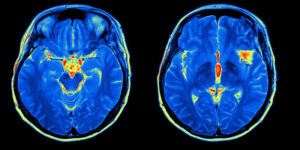
Neuroimaging is a technique that allows scientists to visualize the brain. Neuroimaging techniques include MRI, fMRI, and PET scans. These techniques enable scientists to see the brain in action and to study its structure and function.
Brain Mapping
Brain mapping is a technique that allows scientists to create a map of the brain. Brain maps can be used to identify the brain’s different regions and study their function. Brain mapping techniques include MRI, fMRI, and PET scans.
Brain Function 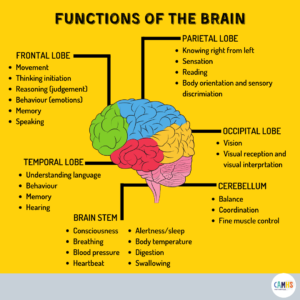
Brain function refers to the activities of the brain. Brain function includes things like thinking, learning, remembering, and moving. Brain function is controlled by the brain’s neurons, which are specialized cells that communicate with each other through electrical and chemical signals.
Brain Anatomy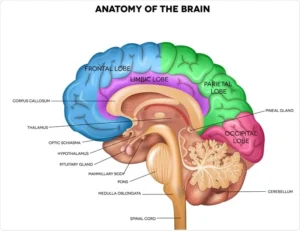
Brain anatomy refers to the structure of the brain. Brain anatomy includes the different regions of the brain and their functions. Brain anatomy is studied using various techniques, including MRI, fMRI, and PET scans.
Brain Disorders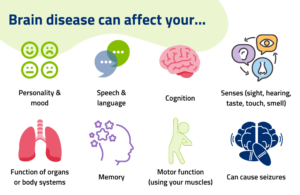
Brain disorders are conditions that affect the brain. Various factors, including genetics, injury, and disease, can cause brain disorders. Brain disorders can affect a person’s thinking, learning, remembering, and moving.
Mental Health
Mental health refers to the emotional and psychological well-being of a person. Mental health is affected by various factors, including genetics, life experiences, and brain chemistry. Mental health disorders affect a person’s thinking, feelings, and behavior.
Psychology
Psychology is the scientific study of the mind and behavior. Psychologists use various brain study methods, including behavioral experiments, computer simulations, and brain scans. These methods allow psychologists to understand how the brain processes information, makes decisions, and learns.
Psychiatry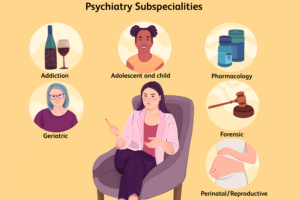
Psychiatry is the branch of medicine that deals with the diagnosis, treatment, and prevention of mental disorders. Psychiatrists use various brain study methods, including behavioral experiments, computer simulations, and brain scans. These methods allow psychiatrists to understand how the brain processes information, makes decisions, and learns.
Here are some ways to study the brain informally:
- Read books and articles about the brain. Several books and articles can teach you about the brain’s structure, function, and disorders.
- Watch documentaries and videos about the brain. Several documentaries and videos can teach you about the brain in a fun and engaging way.
- Take online courses about the brain. There are several online courses available that can teach you about the brain. Experts in the field often teach these courses and can give you a deeper understanding of the brain.
- Attend lectures and workshops about the brain. There are several lectures and workshops available that can teach you about the brain. Experts often lead these events in the field and can give you a unique opportunity to learn about the brain.
- Talk to experts about the brain. If you know someone who is an expert in neuroscience, ask them questions about the brain. Experts can provide you with valuable insights and information about the brain.
By studying the brain informally, you can better understand this complex organ and how it works. This knowledge can help you make informed decisions about your brain health and well-being.
FAQs
What is the best way to study the brain informally?
There is no one-size-fits-all answer to this question, as the best way to study the brain informally will vary depending on your learning style and interests. However, some general tips include:
- Read books and articles about the brain. Several books and articles can teach you about the brain’s structure, function, and disorders.
- Watch documentaries and videos about the brain. Several documentaries and videos can teach you about the brain in a fun and engaging way.
- Take online courses about the brain. There are several online courses available that can teach you about the brain. Experts in the field often teach these courses and can give you a deeper understanding of the brain.
- Attend lectures and workshops about the brain. There are several lectures and workshops available that can teach you about the brain. Experts often lead these events in the field and can give you a unique opportunity to learn about the brain.
- Talk to experts about the brain. If you know someone who is an expert in neuroscience, ask them questions about the brain. Experts can provide you with valuable insights and information about the brain.
What are some of the benefits of studying the brain informally?
There are several benefits to studying the brain informally, including:
- Improved understanding of the brain. By studying the brain informally, you can better understand how it works and how to keep it healthy.
- Informed decision-making. By understanding how the brain works, you can make more informed decisions about your brain health and well-being.
- Lifelong learning. The brain is a lifelong project, and there is always something new to learn about it. By studying the brain informally, you can stay up-to-date on the latest research and discoveries and ensure your brain is healthy and functioning at its best.
What are some tips for studying the brain informally?
Here are some tips for studying the brain informally:
- Set realistic goals.Don’t try to learn everything about the brain all at once. Start by focusing on a specific topic that interests you.
- Find resources that are appropriate for your learning style. Various resources are available to help you study the brain informally, so find ones that match your learning style and interests.
- Be consistent with your learning. Set aside some time each week to study the brain. Even a tiny amount of time each week can add to significant learning over time.
- Make it fun! Learning about the brain should be enjoyable. If you’re not enjoying the way you’re learning, try something different.
What are some common misconceptions about the brain?
There are several common misconceptions about the brain, including:
- The brain is fully developed by adulthood. The brain continues to grow and change throughout adulthood.
- We only use 10% of our brains. We use all of our brains, even when we’re sleeping.
- Brain damage is always permanent. The brain has a remarkable ability to heal itself.
- The brain is not affected by our lifestyle choices. Our lifestyle choices, such as diet, exercise, and sleep, can significantly impact our brain health.
You can learn the truth about these and other common misconceptions by studying the brain informally.
Conclusion
The brain is a complex and fascinating organ, and we still do not know much about it. However, by studying the brain informally, we can better understand how it works and how to keep it healthy.
There are several ways to study the brain informally, including reading books and articles, watching documentaries and videos, taking online courses, attending lectures and workshops, and talking to experts. By taking advantage of these resources, you can learn about the brain’s structure, function, and disorders and make informed decisions about your brain’s health and well-being.
Remember, the brain is a lifelong project. It is constantly changing and adapting, and there is always something new to learn about it. By studying the brain informally, you can stay up-to-date on the latest research and discoveries and ensure your brain is healthy and functioning at its best.


